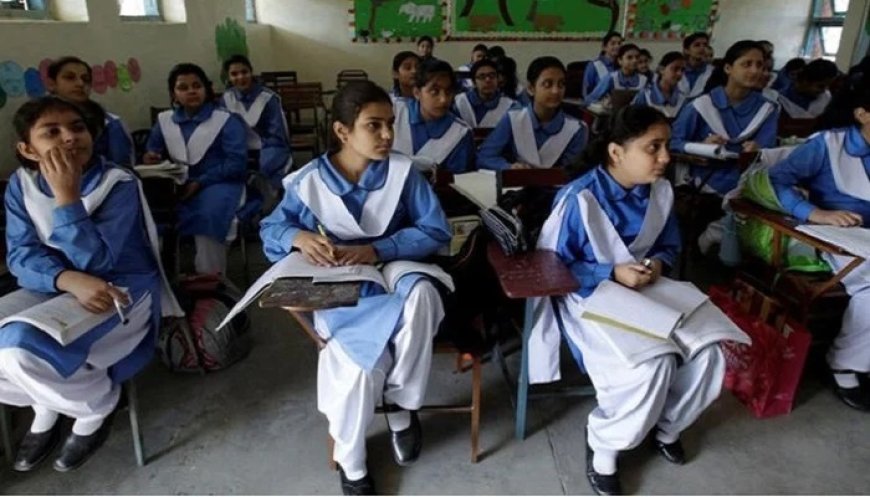World Bank okays $150m to boost education, reduce dropout rate in Punjab

1.
The World Bank (WB) has sanctioned $150 million to enhance enrollment and reading proficiency in Punjab's pre-primary and primary schools, as announced in a statement on Saturday.
The project, named "Getting Results: Access and Delivery of Quality Education Services in Punjab Project" (GRADES), aims to improve learning outcomes, recover from COVID-19-related learning losses, strengthen school management, and increase school participation levels.
The WB's Board of Executive Directors approved the project, noting that the funding will help achieve higher completion rates and increased schooling years with improved learning for both girls and boys.
This initiative is expected to benefit around 5 million children, 7,000 headteachers, 165,000 teachers, and over 3,000 teacher mentors in public schools and Punjab Education Foundation schools.
"Punjab has more than 7 million out-of-school children. GRADES will help the government of Punjab significantly reduce this number and, simultaneously, improve foundational learning outcomes for boys and girls already in school," said Najy Benhassine, World Bank Country Director for Pakistan.
The project will achieve these goals by scaling up public-private partnerships, enhancing school preparedness for young children, improving teaching and learning materials and assessments, and creating better learning environments in schools.
Given Pakistan's susceptibility to climate shocks, the project will adopt a climate-resilient approach, including constructing approximately 5,400 additional climate-smart classrooms in primary schools.
The project will introduce low-cost climate-smart features such as raised plinths and reflective roofs, prioritizing the reconstruction of schools damaged during the 2022 floods, particularly girls' schools, overcrowded schools, and schools in areas with high numbers of out-of-school children.
The WB also plans to strengthen disability inclusion by making school infrastructure more accessible and incorporating inclusive education principles in teacher training.
"The World Bank and the government of Punjab have a strong history of collaboration on education reform," said Izza Farrakh, Task Team Leader for the Project. "GRADES will leverage this partnership for further innovation, such as climate-resilient classrooms and integrating climate change education into the curriculum."
Farrukh added that these reforms will ensure a safe and conducive learning environment while preparing the next generation to be more resilient to climate shocks and natural disasters.
This $150 million approval for the GRADES project follows the World Bank's recent approval of $1 billion in additional financing for the Dasu Hydropower Stage I (DHP I) Project, which aims to expand hydropower electricity supply, improve access to socio-economic services for local communities, and build the Water and Power Development Authority’s (WAPDA) capacity for future hydropower projects.
"Pakistan’s energy sector faces multiple challenges in achieving affordable, reliable, and sustainable energy," said Benhassine. "The Dasu Hydropower Project site is one of the best hydropower sites globally and is a game changer for Pakistan's energy sector. With a very small footprint, the DHP will contribute to 'greening' the energy sector and lowering the cost of electricity," he added.


















































